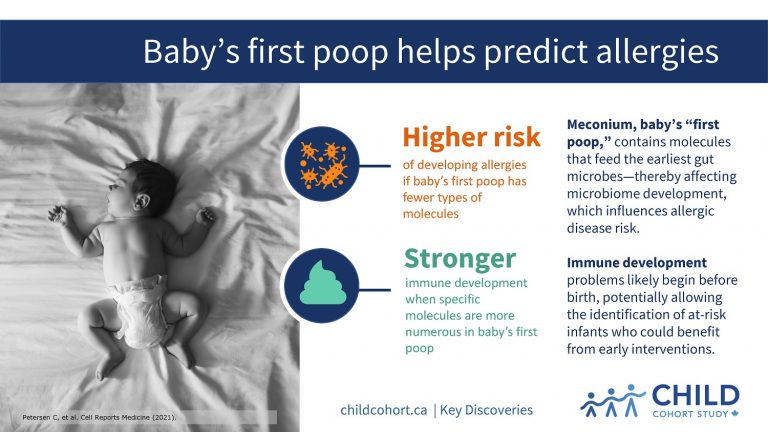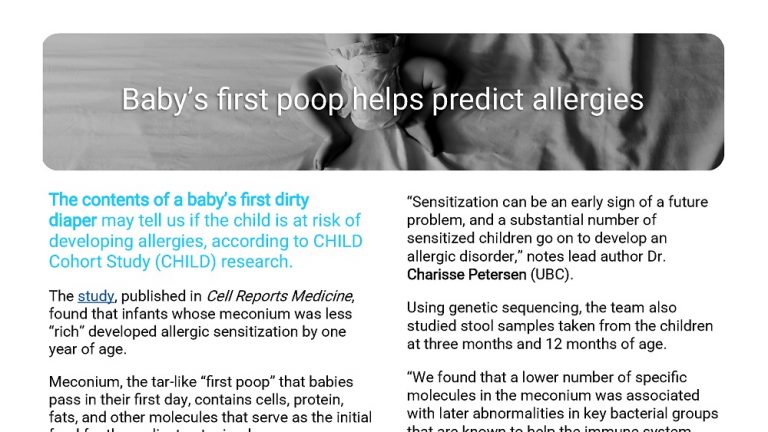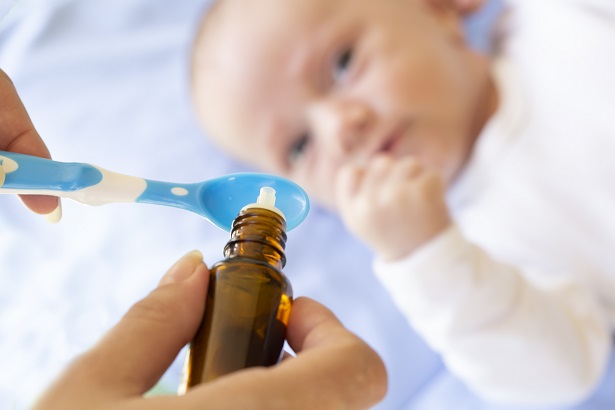Baby’s first poop helps predict allergies
The contents of a baby’s first dirty diaper may tell us if the child is at risk of developing allergies, according to CHILD Cohort Study (CHILD) research
The study, published in Cell Reports Medicine, found that infants whose meconium was less “rich” developed allergic sensitization by one year of age.
Meconium, the tar-like “first poop” that babies pass in their first day, contains cells, protein, fats, and other molecules that serve as the initial food for the earliest gut microbes.
“Knowing as we do that disruptions to the healthy maturation of the microbiome may lead to allergies and asthma down the road,” explains senior co-author Dr. B. Brett Finlay (UBC), “we wanted to see if there was a connection between the molecules in the meconium and microbiome development, which, in turn, would influence susceptibility to allergic diseases.”
FEWER MOLECULES, GREATER ALLERGY RISK
The researchers analyzed the meconium of 100 newborns and assessed their reaction, at one year of age, to a variety of allergens. They found that the fewer the types of molecules in a baby’s meconium, the greater that child’s risk of developing allergic sensitization.
“Sensitization can be an early sign of a future problem, and a substantial number of sensitized children go on to develop an allergic disorder,” notes lead author Dr. Charisse Petersen (UBC).
Using genetic sequencing, the team also studied stool samples taken from the children at three months and 12 months of age.
See media coverage of this discovery by GlobalNews
“We found that a lower number of specific molecules in the meconium was associated with later abnormalities in key bacterial groups that are known to help the immune system develop and mature in the first year,” adds Dr. Petersen.
“Thanks to the dedication and enthusiasm of the families participating in CHILD, we are learning how and why allergies and asthma develop,” comments senior co-author Dr. Stuart Turvey (UBC), co-director of CHILD.
“These new findings suggest that some microbiome and immune development problems likely begin before birth, giving us an opportunity to identify at-risk infants who could benefit from early interventions well before the signs and symptoms of allergies appear.”
Previous CHILD research has also linked the presence of specific bacteria in the infant gut with decreased risk of developing asthma.





